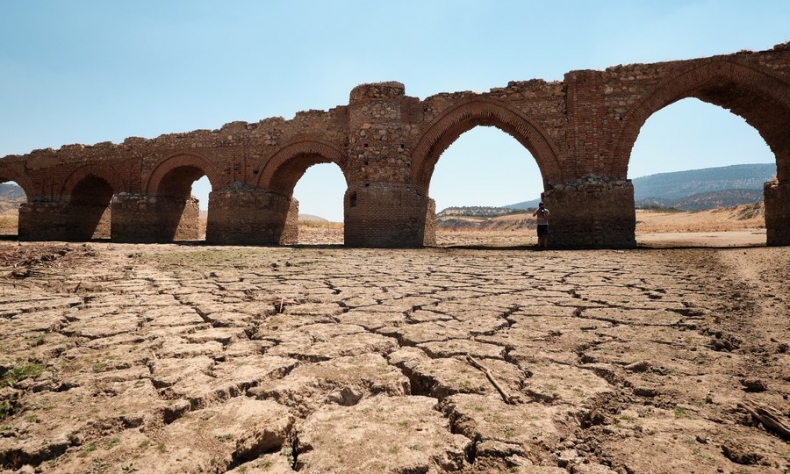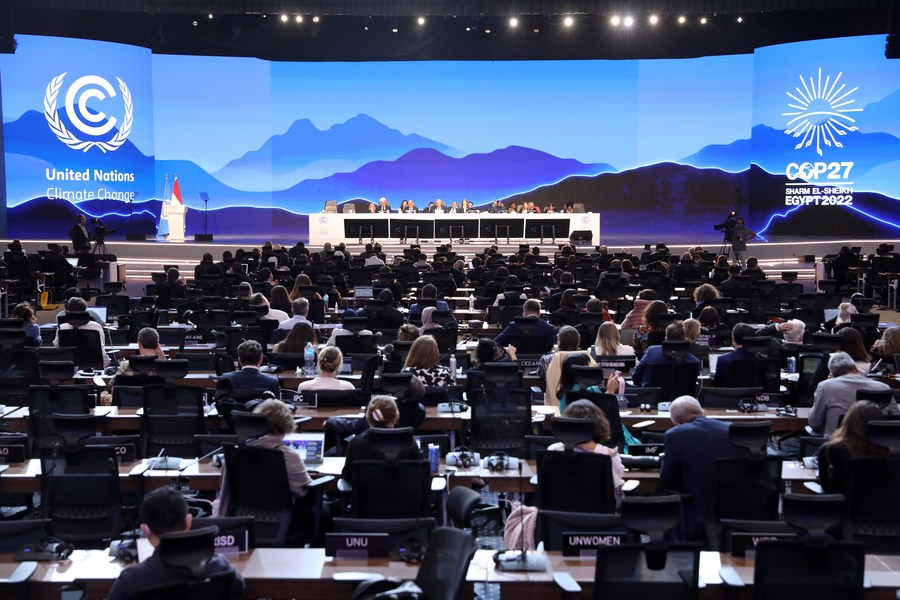Taking Climate Responsibility

Climate change is a common threat to all human beings and the world community should deal with the problem in a concerted manner. Developed countries and developing countries should take their ‘common but differentiated responsibilities.’
The Earth Summit, also known as the Rio Conference, was held in Brazil in 1992. It was in response to the euphoria that marked the end of the Cold War and the beginning of collaborative and cohesive global cooperation and international relations. Thirty years later, the reality of the present planetary situation was laid bare at the 27th Conference of the Parties of the United Nations Framework Convention on Climate Change (COP27) in Sharm El-Sheikh, Egypt, in November 2022.
It seems the countless hours of deliberations, discussions and globetrotting for conferences and meetings over the past 27 years of COP have achieved little in terms of combating global warming. While a few so-called developed nations act surreptitiously with guile and impunity, the rest of the world has to bear the brunt of their destructive and thoughtless actions and policies.
Developing nations’ voice should be heard. During the COP27, ministers from BASIC countries (Brazil, South Africa, India and China) met and released a statement on the world countries’ responsibilities in dealing with climate change on 15 November 2022.
“BASIC countries are gravely concerned that developed countries are still not showing leadership or responding with a matching progression of effort. There has been backtracking on finance and mitigation commitments and pledges by developed countries. There has also been a significant increase in the consumption and production of fossil fuels in the past year by developed countries, even as they continue to press developing countries to move away from the same resources. Such double standards are incompatible with climate equity and justice.”
This excerpt from the BASIC Ministerial Joint Statement at the COP27 represents the voice of developing countries.

The COP27 also reached an agreement on new “loss and damage” fund for vulnerable countries. It was seen as a breakthrough for the delegates at the COP27. “This outcome moves us forward,” said UN Climate Change Executive Secretary Simon Stiell. “We have determined a way forward on a decades-long conversation on funding for loss and damage – deliberating over how we address the impacts on communities whose lives and livelihoods have been ruined by the very worst impacts of climate change.”
The current challenges in global affairs mirror a reflection of a bipolar, divided past, and create the perception that the solidarity and goodwill reached in 1992 in Rio de Janeiro no longer exist. Funders, financiers and bankers will have you believe that they can conjure up enough capital to finance the acquisition of a new planet and its eco-friendly development.
Climate change is a common threat to all human beings and the world community should deal with the problem in a concerted manner. Developed countries and developing countries should take their “common but differentiated responsibilities.”
The nations of the Global South are finding their voice and embracing their own potential as they realise the absurdity of the situation. They are being accountable and mindful of the abundant riches of the skies above, the bounty of the land and seas, and the mineral wealth in the earth below. They have been open and humble in sharing this bounty for many millennia in the hope that it will be reciprocated in kind. Universal wisdom clearly points out that those who have reneged on the accountability entrusted to them should recognise that holding on to self-serving policies that are a hindrance to their own progress and development is a race to the bottom.
China’s remarkable development is not coincidental – it is the result of a well-thought-out plan implemented over decades. The country has consciously and thoughtfully taken into account the effects of development on the environment and has guided its progress accordingly. The discipline the nation and its leadership have displayed is exemplary and is an indication of a deep understanding of humanity and its connection with nature. Africa itself is forging a new path away from its skewed and convoluted history, rediscovering the value of its indigenous knowledge systems which resonated with the environment and found balance in the natural order in the world.
The author is director of the Diplomatic Society of South Africa.
 Facebook
Facebook
 Twitter
Twitter
 Linkedin
Linkedin
 Google +
Google +










